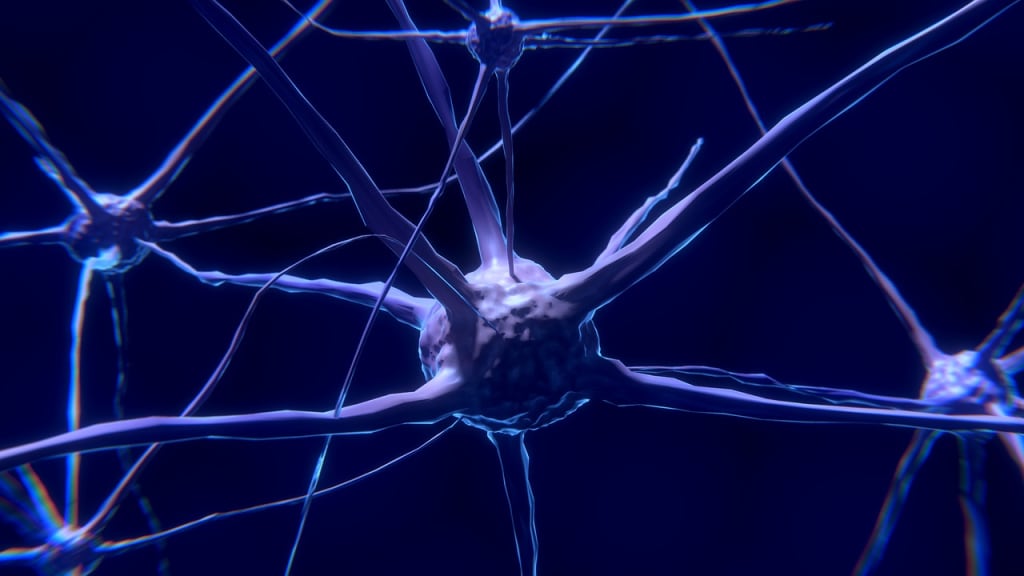To Take Hold of, To Seize
How I took control of my epilepsy

I was fourteen years old, and I had my first seizure. I was at school and walked into the wrong classroom. I woke up on the floor and wasn't able to remember my birthday, my address, or what class I meant to go to. I was wheeled off into an ambulance, and I had another seizure in the hospital. I did not have cancer, or any other ailment that causes seizures. I was diagnosed with epilepsy.
Two months ago—twelve years later—I had a breakthrough seizure. While I have had partial seizures beforehand, this was my first grand-mal seizure since I was a teenager. I had two partial-focal seizures that day. As my supportive partner drove me to the hospital, I lost consciousness and started shaking. I lost the ability to speak for some time afterwards and relied upon my partner to communicate to the doctors on my behalf. I could not do it without her.
I felt completely helpless and alone. I felt like I was losing my mind. I felt like my brain was betraying me. I had done nothing wrong, just dealt a bad hand. I cried every moment I thought about my partner's look of terror and concern, and how I couldn't tell her I love her.
The thing about seizures that make them especially terrifying is that they can strike at any time. I am lucky enough to have auras—when you feel a set of symptoms that predicate an upcoming seizure (those with migraines know the term, too). Many do not, however. Some have had a seizure in the shower, even though they did not have any signs suggesting that it could occur. Some have had a seizure while driving (you can get your license after being seizure-free for a long period of time, the amount of which depends on the state). You never know when your life can be ripped away from you.
To make matters even worse, most people do not understand epilepsy or what to do if someone has a seizure. Many do not even know the disorder exists, even though one in twenty-six people are diagnosed with epilepsy in their lifetime. If someone has a seizure, do not put stuff in their mouth. Try to cushion their head, if possible. If they have repeated seizures without regaining consciousness or have one long seizure lasting over five minutes, call the hospital. This can cause long-term damage and is known as status epilepticus.
It affects you in ways that you may not predict. While epileptics have seizures, we have other symptoms too. We take a lot of medications, all of which can have severe side effects. One in four epileptics have ADD, which itself deserves its own article. Many of us have to take precautions, such as refraining from alcohol or not being able to drive. Be patient with us.
If you have a seizure, epilepsy may consume your life. You may refuse from swimming with your family or going out with friends to a bar. Stress is a major cause of seizures, and you might stop going to work if you have a stressful job. You may isolate yourself completely in fear of having another seizure, which is what I have done in the past.
But, after some thinking, I have managed to take control of my epilepsy. I'm not talking about being seizure free—although that's definitely a part of it. I'm talking about not losing myself in the fear. I'm not just an epileptic; I'm a person with epilepsy.
I can still write articles, read books and poems, listen to music, watch RuPaul's Drag Race, and love my partner. I can do everything that makes me whole. I am still Layne. While I have bad mornings and awful afternoons, I retain my own identity. I remember who I am. When I had the first seizure, I was only able to tell the people standing around me that my name is Layne Radlauer.
If you have had your first seizure or have just been diagnosed with epilepsy, this is my advice for you: Don't forget that there is a person in that brain of yours. You are not broken, there is treatment available. There are always ways to cope. Keep writing, keep reading, keep watching, and keep indulging in your hobbies. If you don't have one, try to find one. Or, if you feel too terrible to do anything, try to express yourself whenever you can. There are online support groups that can make you feel not so alone in your lifelong fight.
Epilepsy, at its root, means, "to take hold of, to seize." Do not let it take hold of you.
About the Creator
Layne Radlauer
Heyo, I'm Layne. I write poems, short stories, and creative nonfiction. I'm a fan of science-fiction, horror, and all of that type of thing. I've got a BA in English from Penn State, and I live in Santa Fe, NM.






Comments
There are no comments for this story
Be the first to respond and start the conversation.